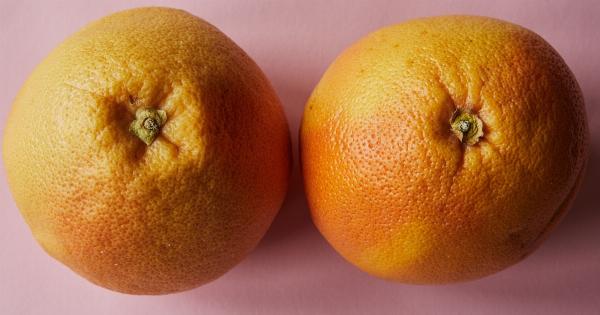Breast cancer is one of the most prevalent types of cancer among women worldwide.
While several risk factors have been identified, including family history and genetic mutations, recent research has indicated a strong link between food choices and breast cancer risk. In this article, we will explore the connection between food and breast cancer risk, highlighting key dietary factors that can impact an individual’s susceptibility to this disease.
The Western Diet and Breast Cancer
The Western diet, characterized by high consumption of processed foods, red and processed meats, sugary beverages, and refined grains, has been associated with an increased risk of breast cancer.
Several large-scale studies have demonstrated a clear correlation between adherence to a Western diet and the incidence of breast cancer.
One possible explanation for this connection is the high content of unhealthy fats in the Western diet.
Trans fats and saturated fats, commonly found in processed and fried foods, have been shown to promote inflammation and disrupt hormone balance, both of which can contribute to the development of breast cancer.
Furthermore, the excessive intake of added sugars and sugary beverages in the Western diet may lead to weight gain and obesity, which are significant risk factors for breast cancer.
Adipose tissue produces estrogen, and excess body fat can result in higher estrogen levels, increasing the likelihood of developing hormone receptor-positive breast cancer.
The Protective Role of Fruits and Vegetables
In contrast to the Western diet, diets rich in fruits and vegetables have been associated with a lower risk of breast cancer.
Fruits and vegetables are excellent sources of antioxidants, vitamins, minerals, and dietary fibers that help protect cells from damage and maintain a healthy immune system.
Cruciferous vegetables, such as broccoli, cauliflower, and Brussels sprouts, contain compounds called glucosinolates, which have been shown to have anti-cancer properties.
These vegetables also contain indole-3-carbinol, which helps metabolize estrogen and reduce its potential carcinogenic effects.
Additionally, brightly colored fruits like berries and citrus fruits contain high levels of flavonoids and vitamin C, which are known for their potent antioxidant properties.
These compounds can neutralize free radicals and reduce oxidative stress, preventing DNA damage that could lead to cancer development.
The Impact of Alcohol Consumption
Studies have consistently linked excessive alcohol consumption to an increased risk of breast cancer. Alcohol is metabolized into acetaldehyde, a toxic compound that can damage DNA and proteins, increasing the chances of malignant cell growth.
Moreover, alcohol interferes with the body’s ability to metabolize estrogen, resulting in elevated estrogen levels. This hormonal imbalance can heighten the risk of estrogen receptor-positive breast cancer, the most common subtype of the disease.
To minimize breast cancer risk, it is advisable to limit alcohol intake or avoid it altogether. For those who choose to drink, moderate consumption, defined as up to one standard drink per day, is recommended.
Red Meat, Processed Meat, and Cancer
Red meat, particularly beef and pork, has been associated with an increased risk of breast cancer.
Additionally, processed meats like bacon, sausage, and cold cuts have been classified as group 1 carcinogens by the International Agency for Research on Cancer (IARC).
The cooking process of red and processed meats can lead to the formation of heterocyclic amines (HCAs) and polycyclic aromatic hydrocarbons (PAHs), which are known carcinogens.
These compounds can cause DNA damage and promote the growth of cancer cells.
Furthermore, the high iron content in red meat may encourage the formation of free radicals. Free radicals can trigger inflammation and oxidative stress, both of which contribute to the development of breast cancer.
The Role of Omega-3 Fatty Acids
Omega-3 fatty acids, commonly found in fatty fish like salmon, mackerel, and sardines, have been associated with a reduced risk of breast cancer.
These essential fatty acids possess anti-inflammatory properties and can help regulate cell growth, differentiation, and apoptosis.
Several studies have shown that omega-3 fatty acids can inhibit the growth of breast cancer cells and prevent the formation of new blood vessels that supply nutrients to tumors.
These effects contribute to the suppression of tumor growth and metastasis.
Incorporating omega-3-rich foods into the diet, either through fish or plant-based sources like flaxseeds, chia seeds, and walnuts, may be beneficial in reducing breast cancer risk.
The Impact of Dairy Products
Certain components of dairy products, such as calcium and vitamin D, have been suggested to have protective effects against breast cancer. However, the overall relationship between dairy consumption and breast cancer risk remains inconclusive.
Some studies have found a positive association between high intake of dairy products and an increased risk of breast cancer. This may be attributed to the hormone content present in milk and dairy products.
Insulin-like growth factor 1 (IGF-1), a hormone naturally found in cow’s milk, has been linked to the development of various cancers, including breast cancer.
It is important to note that more research is needed to fully understand the relationship between dairy consumption and breast cancer risk. Until then, individuals should practice moderation and choose low-fat dairy options.
The Mediterranean Diet and Breast Cancer
The Mediterranean diet, characterized by a high intake of plant-based foods, whole grains, legumes, and healthy fats, has been consistently associated with a reduced risk of breast cancer.
This diet is rich in antioxidants, vitamins, minerals, and fiber, providing numerous health benefits. The consumption of olive oil, a staple of the Mediterranean diet, is particularly noteworthy.
Olive oil contains monounsaturated fatty acids, which have been shown to reduce inflammation and protect against cancer development.
Moreover, the Mediterranean diet encourages the consumption of fish, which provides omega-3 fatty acids, along with moderate consumption of red wine, known for its antioxidant properties.
Affirming the Connection
While the causal relationship between food and breast cancer risk is complex and multifactorial, research consistently indicates that dietary choices play a significant role in an individual’s susceptibility to developing breast cancer.
Adopting a healthy and balanced diet, such as the Mediterranean diet, rich in fruits, vegetables, whole grains, and lean protein sources, can help reduce the risk of breast cancer.
Avoiding or limiting the consumption of processed foods, red meat, and alcohol is also recommended.
It is important to remember that no single food or dietary factor can guarantee the prevention or development of breast cancer.
However, making informed dietary choices is a proactive step individuals can take in mitigating their risk and promoting overall health and well-being.
















